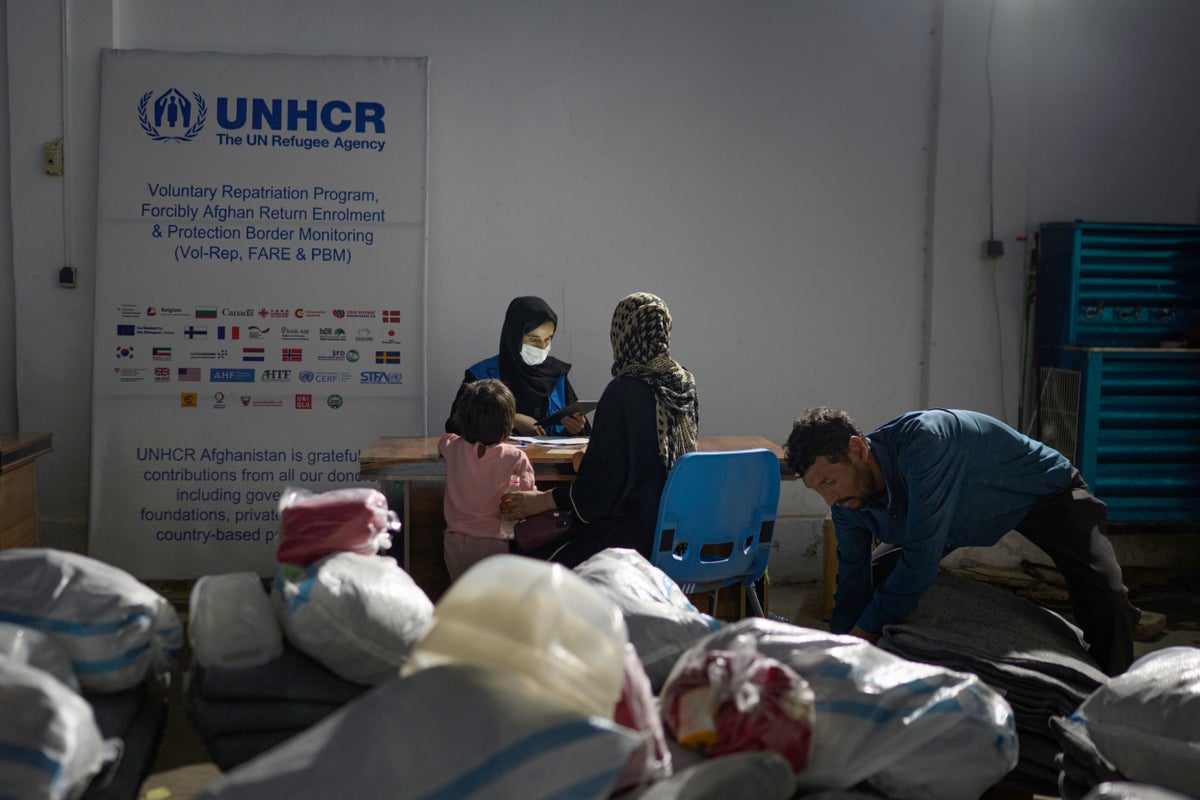The UN is urging the Taliban to stop restricting its local female staff from coming to work in Afghanistan, warning it is interfering with critical relief work for earthquake victims.
According to an advisory issued by the UN’s safety and security department, the Taliban deployed armed guards outside its Kabul compound over the weekend who “actively prevented” Afghan female staff members from coming into work.
Security personnel were also stationed outside the offices of the World Bank and the Asian Development Bank.
The UN then asked its Afghan women staff to work from home.
In June, several women employed by the UN in Kabul stopped working after being reportedly stalked and harassed and given graphic death threats by unidentified men.
The United Nations Assistance Mission in Afghanistan said the latest restriction on its female workers extended throughout the country. “This restriction was extended to UN field offices across the country following written or verbal notifications from the de facto authorities,” it said in a statement. “Security forces are visibly present at the entrances of UN premises in Kabul, Herat and Mazar-i-Sharif to enforce the restriction. This is particularly concerning in view of continuing restrictions on the rights of Afghan women and girls.”
The Taliban barred women in many professions from working outside their own homes after seizing back power four years ago, but agreed to exempt local female staff members of the UN from the ban.
“Current actions disregard previously communicated arrangements between the de facto authorities and the United Nations in Afghanistan. Such arrangements have enabled the United Nations to deliver critical assistance across the country, through a culturally sensitive and principled approach ensuring the delivery of assistance by women, for women,” the UN mission said in a statement.
The Independent has contacted the Taliban’s interior affairs ministry for comment.
The timing of the restriction is especially concerning as the country is still reeling from the devastation caused by the magnitude-6 earthquake on 31 August, and international aid agencies are stretched thin.
Afghanistan was already struggling with drought, a weak economy, and the deportations of over two million nationals from Pakistan and Iran.
The UN mission said the restriction on its female staff put “at serious risk” humanitarian assistance and other essential services to hundreds of thousands of women, men and children in the earthquake-affected areas of eastern Afghanistan and along its borders with Iran and Pakistan.
The agency informed the Taliban that preventing its local female staff from coming to work was against the UN charter and not possible operationally.
“The Taliban’s ministry of defence has intervened saying they will enforce the ban on female national staff working for NGOs,” an official at the UN mission told The Independent on the condition of anonymity. “They are enforcing it now by posting their men outside the UN offices.”
The official said they were worried this decision could deter donors who might think that women were no longer getting help in Afghanistan. “There’ll be a bigger knock-on effect because international donors will look at this and conclude that it’s no longer possible to deliver aid fairly to men and women in line with the humanitarian principle, which is non-discrimination,” the official explained. “They will say, ‘We’re not gonna give any money.”
Richard Bennett, the UN special rapporteur on the situation of human rights in Afghanistan, called on the Taliban to lift restrictions on UN female staff.
“Blocking women from accessing workplaces or supporting communities in need is further proof that the Taliban must not be normalised until they change course,” he said.
If the Taliban continued to fight UN over local staff, its life-saving work for millions of Afghans, especially women and children, could cease to exist, the official warned.
“This puts a big question mark over the entire UN operation,” they said. “This will hit Unicef, UNHCR and WFP because you cannot deliver aid then.”

